#Heavenly Jerusalem
Text
The Mountain of Fear and the Mountain of Joy by James R. Coggins
In Hebrews 12:18-29, there is a fascinating contrast between two mountains: “You have not come to a mountain that can be touched and that is burning with fire; to darkness, gloom and storm…But you have come to Mount Zion, to the city of the living God, the heavenly Jerusalem. You have come to thousands upon thousands of angels in joyful assembly” (NIV). The writer was referring to Mount Sinai,…

View On WordPress
1 note
·
View note
Text
Keeping to the good paths
Keeping to the good paths
As believers abiding within the words of Yahweh and his Messiah, we conduct ourselves in well-worn paths that have been cut by our spiritual forefathers.
Proverbs 2:20-22 – So follow the way of the good, and keep to the paths of the righteous. For the upright will inhabit the land, and those of integrity will remain in it; but the wicked will be cut off from the land, and the treacherous ripped…
View On WordPress
#blessings#christ#commands#curses#deuteronomy 28#disobedience#god#heavenly jerusalem#hebrews 11#hebrews 12#Integrity#jesus#john 12#john 14#land#messiah#new jerusalem#obedience#path#promised land#proverbs 2#righteous#righteousness#the way#yahweh#yeshua
0 notes
Text
CHANUKAH, REFLECTING MESSIAH
Image:© tomertu/Shutterstock.com
Yeshua spoke to them again, saying, “I am the light of the world. The one who follows Me will no longer walk in darkness, but will have the light of life.”John 8:12
‘Tis the season for many around the world to show off their creative light decoration skills. Many are eagerly awaiting Christmas, a time when the light shines from homes, commercial buildings,…
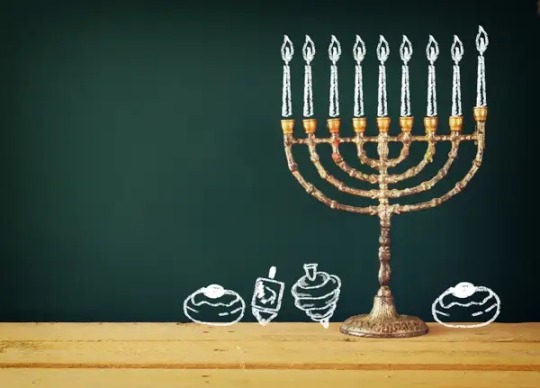
View On WordPress
#Apostle#Chanukah#Christmas#Festival of Lights#Gentiles#God#Gospel#Hanukkah#Heaven#Heavenly#Jerusalem#Jesus#Jews#Light#Light of men#Maccabbee#Messiah#salvation#Savior#Yeshua
6 notes
·
View notes
Text
The description of the New Jerusalem, the bride of Christ, [is] highly symbolic. The twelve gates (drawn from Ezekiel’s prophecy) face the four quarters of the compass, to show that it embraces the whole universe and is four-square solid. They symbolise the twelve tribes of Israel and so also the twelve apostles. The richness and contentment [thereof] is hinted by the sparkle of precious stones, not only diamonds but many others too. The dimensions of the city are vast: a cube of 1,500 miles in each direction. [For scale, that measures approximately from present-day Jerusalem to Afghanistan and Ethiopia! Yet even across all this space, there is] no need for the light and warmth of the sun, for the Lord God and the Lamb provide a single source of its nourishment and illumination. [And there is] no need for a sacred area, for the presence of the Lord God and the Lamb make the whole city a sacred area. This [description, as a whole,] is the ultimate goal of Creation, when all is absorbed into God, the ultimate fulfilment of ‘Thy Kingdom come’. The Letter to the Ephesians expresses it as the whole universe ‘headed up’ into Christ-- [restoring His rightful position of universal authority as a head to the body, or a groom to a bride-- and thus] making sense of Creation and bringing Creation to its completion.
Dom Henry Wansbrough; Commentary on Revelation 21
#reflect on this#the heavenly Jerusalem#revelation#biblical commentary#dom henry wansbrough#thy kingdom come#hope#the beauty of god#ephesians 1:10#christ as king of the universe#the church as the bride of christ#this is amazing
12 notes
·
View notes
Text
2023 FEBRUARY 07 Tuesday
"But while honoring our heavenly Father let us honour also the fathers of our flesh. The first virtue of godliness in Christians is to honour their parents, to requite the troubles of those who begot them, and with all their might to confer on them what tends to their comfort. For if we should repay them ever so much, yet we shall never be able to return their gift of life."
~ Saint Cyril of Jerusalem,
Catechetical Lecture 7, 15-16
#bible#further reading#saint#Cyril#Cyril of Jerusalem#honor#heavenly Father#earthly father#father#flesh#first#virtue#godliness#Christians#parents#requite#trouble#begot#begotten#might#confer#tend#comfort#repay#much#never#return#gift#life
0 notes
Quote
On that day even the harness bells of the horses will be inscribed with these words: HOLY TO THE LORD. And the cooking pots in the Temple of the LORD will be as sacred as the basins used beside the altar. In fact, every cooking pot in Jerusalem and Judah will be holy to the LORD of Heaven's Armies. All who come to worship will be free to use any of these pots to boil their sacrifices. And on that day there will no longer be traders in the Temple of the LORD of Heaven's Armies.
Zechariah 14:20-21 NLT (2015)
#bible verse#scripture#prophecy#promises#worship#holiness#sacred#clean and unclean#end times#the new jerusalem#the temple#tabernacle#sanctuary#heavenly host#armies#zechariah 14#new living translation#equality
0 notes
Text
William Blake - an introduction for Good Omens fans
I have sent @neil-gaiman an ask regarding his feelings toward the poet/artist William Blake a couple of times, but no doubt due to the size of the poor man's inbox I haven't received a response. So I did a Google search to see if he's spoken about Blake before, and it did indeed come up with a fair few hits. I think you might enjoy seeing this Twitter post if you haven't already, the painting is from William Blake's illustrations to Paradise Lost.
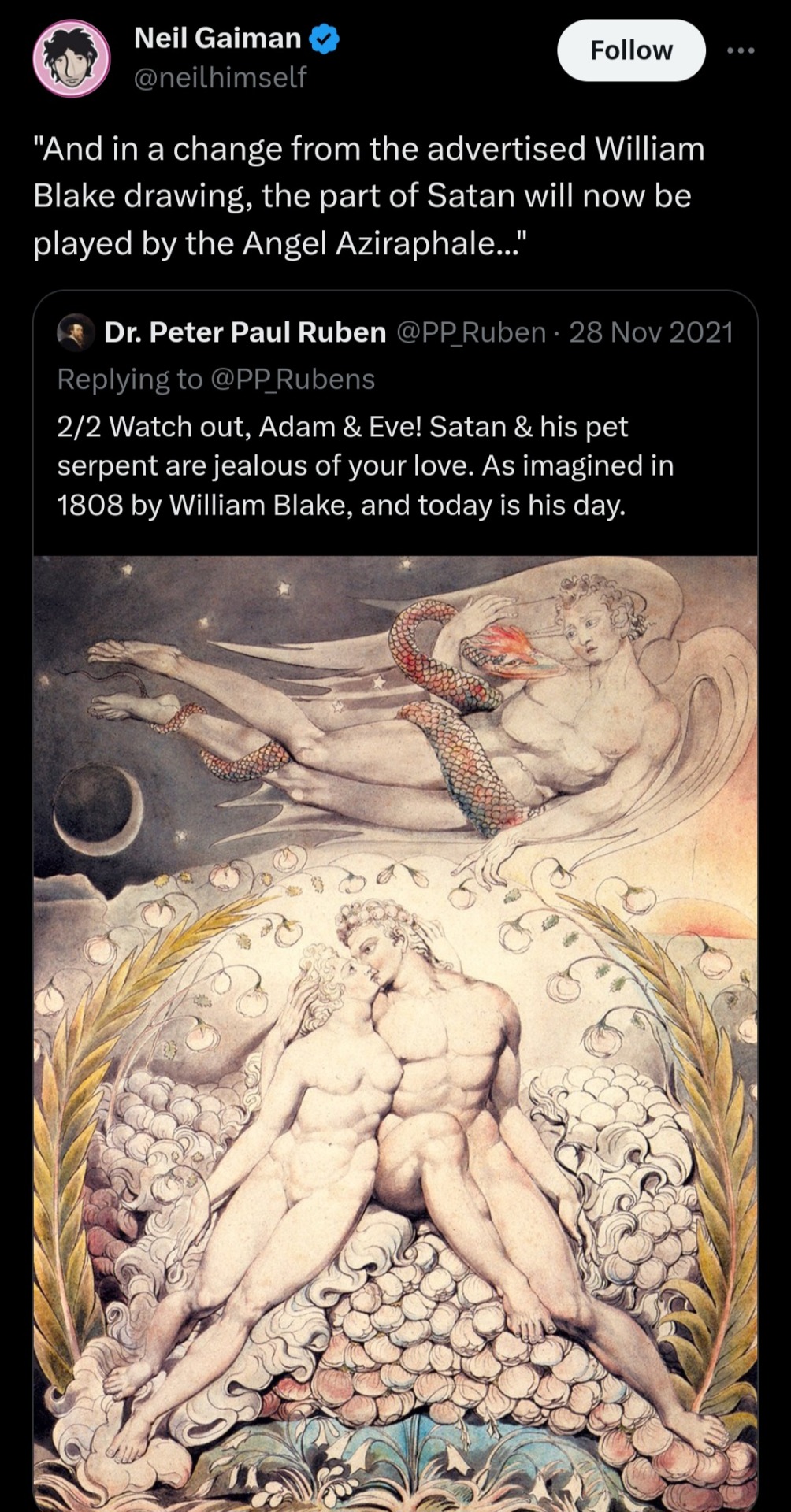
It's not surprising that an author like Neil Gaiman might have an interest in Blake. A visionary from a young age, his imagination was such that he was surrounded by angels made visible in his mind's eye, and he interpreted these visions through poetry, painting and engraving, and self-printed and published many of his own works. This gave him complete freedom to say exactly what he wanted.
Though he had a passionate faith in God, he also had a deep distrust of the church as an institution, and disliked the use of religion as a means of control. This poem from "Songs of Experience" perhaps summarises his feelings best:
"I went to the Garden of Love,
And saw what I never had seen:
A Chapel was built in the midst,
Where I used to play on the green.
And the gates of this Chapel were shut,
And 'Thou shalt not' writ over the door;
So I turn'd to the Garden of Love,
That so many sweet flowers bore.
And I saw it was filled with graves,
And tomb-stones where flowers should be:
And Priests in black gowns, were walking their rounds,
And binding with briars, my joys & desires."
In his poetry there is often an incongruity with the generally accepted religious ideas of what is good and evil, Angel and Demon. In The Marriage of Heaven and Hell (there's a title that should make any GO fan sit up and pay attention) he tells us that "in the book of Job, Milton's Messiah is called Satan", signifying that he feels it is Lucifer/the devil who is the true Messiah of Paradise Lost.
He gives us The Voice of the Devil and Proverbs of Hell, and has Angels being transformed into Demons through enlightenment. He tells us that Jesus broke all of the 10 commandments, yet was still virtuous because he acted according to his own morality rather than rules.
The god-figure of his later works, Urizen, generally comes across as malevolent, seeking to bind and control, whilst Los, the Satan/Messiah figure represents freedom, imagination and creativity.
"Restraining desire" and acting contrary to your own nature seem to be the only real evils for Blake.
He expressed his faith through a love of the world and the beauty in it, summed up in this quote:
"When the Sun rises do you not see a round Disk of fire somewhat like a Guinea? O no no I see an innumerable company of the Heavenly host crying Holy Holy Holy is the Lord God Almighty".
He saw "God" in everything, in all the wonders we have around us, and considered writers/poets and religious prophets as essentially the same, since they both have a connection to the divine, and express it through stories.
It's quite ironic that probably his most famous poem, Jerusalem (the one that starts "and did those feet in ancient times walk upon England's mountains green"), was made into a very popular church hymn, yet it is supposed to be satirical in nature. The poem recounts the myth that Jesus may have visited England in his boyhood, and Blake is expressing his disbelief at that notion and the unworthiness of England.
Did I have a point to all this? Mostly to show my hand as a massive Blake nerd, but also to hopefully demonstrate that there's a lot of common ground between his ideas and those expressed in a show/book like Good Omens, and hopefully to inspire some of you who may not be familiar with Blake to seek him out. In particular I'd recommend The Marriage of Heaven and Hell to any and all.
EDIT: I should have thought to include this, here's Michael Sheen reading a Blake poem. I have the CD this is from, he reads several by Blake, as well as other poets I love ❤️ 😍
youtube
#william blake#good omens#good omens book#good omens 2#good omens s3#neil gaiman#crowley#aziraphale#english literature#literature#poetry#go2#good omens s2#good omens season 2#book omens#michael sheen#Youtube
1K notes
·
View notes
Text
Good Omens 2 Opening-What are they marching toward?
Hi, there's something about the opening credit sequence that immediately caught my eye upon the first viewing. @metatronhateblog and I have discussed the whole opening credits at length (helps that we're siblings and can sit in the same room to talk about it) and we both will probably make some posts about things we haven't seen addressed yet.
I haven't seen anyone mention this particular thing yet, but forgive me if this has already been pointed out.
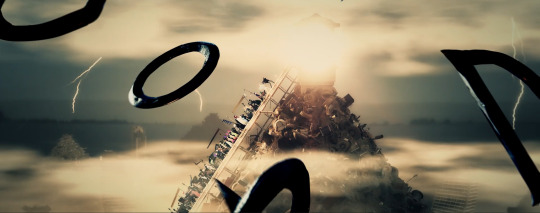
This mountain they are marching up? This is Zion.
I'm almost certain. It's a very interesting word that's used several times in the Old and New Testament, most notably for me in the book of Revelation, which I read a lot as a former Christian (I liked it cause it was the least boring thing to read).
It has a few different meanings from what I've gathered (a note: this is not about z*ionism.), which I will try to give brief explanations on.
Originally I believe it was meant to be an actual location in Jerusalem, a hill/mountain that held the City of David. Literally called Mount Zion I think.
In the Old Testament it also is described as being the place where God rests, where they are enthroned.
Now look at this.

Pretty sure that's a throne room? It looks like a Greek temple, so I think that's the vibe it's going for. The place where God is located.
Most interestingly, Zion is symbolic of the city of heaven, which will come to earth and God will dwell with the people upon Jesus' return and judgement (at least that's what I'm getting from the text? It can be difficult for me to decipher sometimes). Revelation 14:1 states
"Then I looked, and there before me was the Lamb, standing on Mount Zion, and with him 144,000 who had his name and his Father’s name written on their foreheads."
I believe this is the first time Jesus appears during(after maybe?) the great Tribulation (aka, all the torments the earth endures during this time before his return) with those who have been chosen by God. "The Lamb" refers to Jesus, for those who may not know.
I thought it was odd that this possible Zion reference was placed here in season 2 since it's not something that we've seen or heard mentioned thus far, but I think we can safely assume it has to do with season 3 and the Second Coming.
A side note, there's something else I caught while looking at this as well:
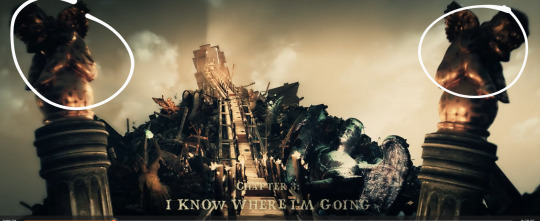
I could be wrong, but it looks like these cherubs are tipping bowls. BOWLS!
In John's visions in Revelation 16, we see seven angels with bowls pouring out plagues to the earth. Bowls of God's wrath. I could go into what they are but that's a whole other post. For some reason I always remembered the bowls the most, I have no idea why. There's so much to find in the opening, it's like a scavenger hunt and my little brain loves it! Anyway.
Fascinating that Zion is what the people and our heroes are marching toward. Are they simply moving toward the end times (again)? Are they marching straight to God's house to get some answers (Aziraphale might be)? Are they moving toward that utopian heaven on earth as they begin eternity, forever and ever amen (as Michael mentions in the forbidden heavenly footage)? Maybe all three.
It may not be all that important and just be purely symbolic, but I thought it was neat. There really is so much in the details!
Thanks for coming to my rambling! I'm going to go try finding more references now.
#good omens#good omens spoilers#good omens 2#good omens theory#aziraphale#crowley#looks like bible quizzing ended up being useful to me after all lol#dont ask
172 notes
·
View notes
Text

Isaiah 11:1-6 (NASB). “Then a shoot will spring from the stem of Jesse, And a Branch from his roots will bear fruit. The Spirit of the Lord will rest on Him, The spirit of wisdom and understanding, The spirit of counsel and strength, The spirit of knowledge and the fear of the Lord. And He will delight in the fear of the Lord, And He will not judge by what His eyes see, Nor make decisions by what His ears hear; But with righteousness He will judge the poor, And decide with fairness for the humble of the earth; And He will strike the earth with the rod of His mouth, And with the breath of His lips He will slay the wicked. Also righteousness will be the belt around His hips, And faithfulness the belt around His waist. And the wolf will dwell with the lamb, And the leopard will lie down with the young goat, And the calf and the young lion and the fattened steer will be together; And a little boy will lead them.”
2 Timothy 4:18 (AMPC). “[And indeed] the Lord will certainly deliver and draw me to Himself from every assault of evil. He will preserve and bring me safe unto His heavenly kingdom. To Him be the glory forever and ever. Amen (so be it).”
“A Promised Hope” by In Touch Ministries:
“If you are in a season of waiting, don't become discouraged—the Lord always delivers.”
“Sometimes it can be hard to grasp how much time passed between events in the Bible. After the Old Testament’s completion, for instance, 400 years passed before God’s next direct revelation.
Let’s put that span in terms we can better comprehend. In 1620, the Pilgrims landed on the shores of what would become Massachusetts. That was 404 years ago. Think of all that has happened since then—everything from the American Revolution to man walking on the moon to the creation of artificial intelligence. God’s people waited that long without a word from the Lord! While many grew despondent, others clung to hope.
Anna, for example, was a widow and prophetess who served at the temple in Jerusalem, waiting for Israel’s redemption. She trusted that “A shoot will spring from the stem of Jesse ... and the Spirit of the Lord will rest on Him” (Isa. 11:1-2). This promised Messiah would bring order, strength, counsel, and wisdom as He delighted in the Lord, and He would make everything right.
Then, at the appointed time, Anna witnessed the miracle of fulfilled prophecy as she gazed into the face of the tiny baby Jesus. In response, she praised and thanked God for being faithful to His promise (Luke 2:38). Like her, we can praise God, secure in the knowledge that God will do all He says He will do.”
(Photo by Marco Lopez at Unsplash)
#isaiah 11:1-6#2 timothy 4:18#god loves you#bible verses#bible truths#bible scriptures#bible quotes#bible study#studying the bible#the word of god#christian devotionals#daily devotions#bible#christian blog#god#belief in god#faith in god#jesus#belief in jesus#faith in jesus#christian prayer#christian life#christian living#christian faith#christian inspiration#christian encouragement#christian motivation#christianity#christian quotes#in touch ministries
29 notes
·
View notes
Text
Previous
“Even if they’re places I haven’t been to,” said Danny, “I’ve heard a lot about them! There’s the Heavenly Garden, the Drowned Quarter, the Mountains of the Moon, and, you know, there are always Elysium, the Far Frozen, Mattingly, or Long N–”
“No,” said Mom, “not Long Now.”
That was another thing Danny didn’t understand about his parents. Their dislike of Clockwork. Clockwork never did anything but help him.
“Okay, but you know Elysium and the Far Frozen are safe, and Mattingly is mostly safe.”
“Our equipment still doesn’t work well in Mattingly,” said Mom. “The Far Frozen is, well…”
“Far,” supplied Dad, but he had picked up a pad of paper and a pen. “What were the other ones?”
“The Heavenly Garden, the Drowned Quarter, and the Mountains of the Moon,” recited Danny, a little more hopefully. Maybe they’d let him go, after all.
“Okay, okay. And- And what are they supposed to be?”
“Well, um,” said Danny, “they’re all different places… The Heavenly Garden is, like, this giant peach orchard. A lot of people go there to eat them, or to have picnics and things. It’s supposed to be a big stop for musicians, too.” At least, according to Ember. He’d mostly heard about it from her and the Lunch Lady.
Dad knit his eyebrows together as he wrote. “And ghosts like that? It sounds sort of… peaceful.”
“Mhm.” Danny shrugged. “Everyone’s different. I think some of the peaches are supposed to be magic, too, but there’s no fighting there because of the Guardian of Peaches. Sometimes there are contests, though. Competitions.”
“Ah,” said Mom. “That makes much more sense. And the others?”
“Then there’s the Drowned Quarter, although I probably would stick to the borders.”
“Why’s that?”
“Because it’s drowned. Underwater. It’s an ocean. And the cities there are all places that sank, like Ys, or even places that aren’t remembered anymore.” He shrugged. “Humans like being near coastlines and rivers, so… You know. They get flooded.”
“Oh,” said Mom, “that’s interesting. So there’s correlation between how a place was destroyed and where it shows up in the Ghost Zone?”
“Is Atlantis there?” asked Dad, interrupting before Danny could answer.
“I mean, yes?” said Danny. “At least, that’s what I’ve heard. And- and the Drowned Quarter is supposed to have really good universities.”
“But it’s underwater,” said Mom.
“Mhm,” said Danny.
“Then it won’t work. Something like that would short out our technology.”
“That’s why I’d stay on the borders! The, you know, the surface. The shore. There are a lot of cities there that just haven’t sunk yet. They’re called the Anticipations. Like, um, there’s the Anticipation of New Orleans, which is supposed to have a lot of portals, too, and the City of Masks, which used to just be called the Anticipation of Venice, but sort of branched out, and Wet London, to keep it separate from all the other Londons, and Miami, but no one goes to Miami, and the Anticipation of Guangzhou–”
“There’s more than one London?” asked Dad.
“Oh, yeah, loads. But no one can beat Jerusalem. There are so many Jerusalems. And they’re all always fighting each other. But! I’m not going there. I think the Anticipation of New Orleans or the City of Masks would be really fun for you to research, though.”
“We’ll think about it,” said Mom, a bit repressively. “And the Mountains?”
“Oh, yeah. The Mountains of the Moon are supposed to be really cool. Like, literally. They’ve got glaciers on them, and people like to hike them. There are a lot of ghosts Obsessed with climbing there. And photography. And, um.” He wasn’t sure he should say this next part, because his parents hadn’t really liked Three Twilights. “There’s also a moon there.”
“A… moon,” said Mom, blankly.
Danny nodded. “It’s like… a small copy of the real moon.
“You say that as though there are more than one of these… fake moons,” said Dad, chuckling.
“There are,” said Danny, nodding. “But I think most of them are pretty far away from the portal right now. I think the Mountains of the Moon should be relatively close.”
“So… how much smaller than the real moon is it?” asked Dad.
“I don’t know! That’s kind of the point of going, isn’t it?” He bounced in place. “So? Can I? Can I go? I know you want to know more, too.” Of course they did! It was the whole reason they’d built the portal, after all, right?
Mom and Dad looked at one another, doing that weird parental telepathy thing they sometimes did. Then they shook their heads.
“Later,” said Mom.
“Next month, maybe,” said Dad. “We want to finish with this data before we get new data. It’ll make everything a lot safer.”
Danny’s shoulders fell. “Okay. Fine.”
“Maybe you can read some of those books Jazz got you?” Mom called after him as he trudged up the stairs. Danny let the door shut behind him without answering.
They just didn’t get it. They still saw him as a little kid, which. Fine. He looked more or less the same as he did the summer before high school, and he knew he hadn’t… matured the way Jazz and his friends had. But he wasn’t, and he was tired of being stuck at home, not doing anything.
Maybe he could figure out how to subvert the DNA lock? He chewed on his thumbnail, a recent nervous habit. He might be able to get Tucker to help him, long distance, or he could try himself. He did know quite a bit about Fenton Tech at this point. Or… he could go out.
He looked at the curtained window. If he went out as Phantom, it’d probably be fine, except for dodging the usual ghost hunters. Stargazing alone could be soothing. But he still wouldn’t be able to talk to anyone or do anything but fly around. Going out as Fenton was… risky. There were plenty of people who wouldn’t recognize him, but many would. Dash, for example, still lived in Amity Park, and he’d heard rumors that some of his other former classmates were back.
Or he could wait. He could do that. Staying home for a while wouldn’t kill him. He was just bored. And lonely.
233 notes
·
View notes
Text
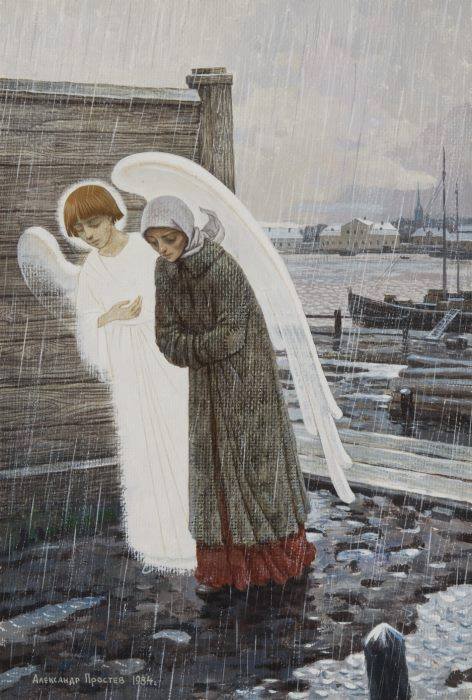
As a homeless wanderer you trod the path of your life in the capital city of Russia, bearing afflictions and reproaches with great patience. Now, abiding in the heavenly Jerusalem, with joy you sing to God: Alleluia.
[From the Akathist to Saint Xenia of Saint Petersburg] / Painting by Alexander Prostev
38 notes
·
View notes
Text

A miracle happened here at the Temple in Jerusalem in Acts 3 thousands of years ago. Jesus is the risen one, and He cannot be forgotten. God can bring life from nothing.
Here is a short prayer about the power of the name of Jesus:
Heavenly Father, we come before you in awe of the mighty name of Jesus. Your Word tells us that at the name of Jesus every knee should bow, in heaven and on earth and under the earth. We declare that there is power in His name to heal the sick, to break chains, and to bring hope to the hopeless. Thank you, Jesus, for the authority and victory we have in your name. In Jesus' name, amen.
#bible study#bible#bibledaily#christianity#daily devotion#jesus christ#gospel#bible scripture#jesus#faith#christian faith
20 notes
·
View notes
Text
Because the Old Testament isn't a story about things that God did in the way that Greek myth might be a story about things that Zeus did. It's not a biography of some heavenly individual doing stuff. It's a story of all these lives and histories touched by something utterly in excess of reality. You learn to talk about God by talking about them. And Jesus himself, in telling parables, doesn't give descriptions of God. He doesn't simply market ideas about God. He says, "There was a man who had two sons," or "A man was going down from Jerusalem to Jericho," and you come sideways or slant into the reality, because that's how you avoid the temptation of tying it all up and being finished with it.
Rowan Williams in conversation with Shane McRae and James K.A. Smith
169 notes
·
View notes
Text
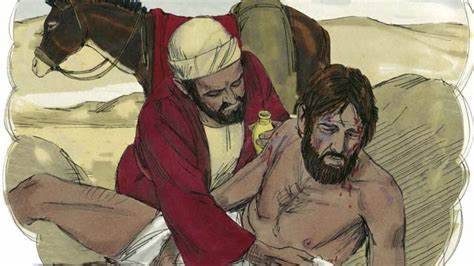
Embodying the Spirit of the Good Samaritan:
A Call to Compassionate Love
The parable of the Good Samaritan, shared by our Lord Jesus Christ, exemplifies the essence of Christian love and compassion towards others, irrespective of their background or nationality. As followers of Christ, we are called to embody the spirit of this parable in our daily lives.
In the narrative, a Jewish man, journeying from Jerusalem to Jericho, fell victim to robbery and violence. Despite his desperate condition, two members of his own community—a priest and a religious leader—passed him by without extending aid or comfort (Luke 10:30-32).
However, it was a Samaritan, considered an outsider by the Jewish community, who demonstrated true compassion. Moved with pity, he tended to the wounded man's injuries and provided for his needs without hesitation (Luke 10:33-35).
This parable challenges us to broaden our understanding of who our neighbors are, beyond the confines of familiarity or shared identity. As Jesus succinctly stated, "Love your neighbor as yourself" (Matthew 22:39), emphasizing the universality of compassion and kindness.
The Samaritans, though marginalized and despised by the Jews, epitomize the unexpected vessel of God's grace and mercy in this story. Their willingness to aid a fellow human being in distress serves as a poignant reminder of God's call to love unconditionally, without prejudice or discrimination (Luke 10:36-37).
Reflecting on this parable prompts us to ponder:
Do I extend compassion to those outside of my immediate circle, regardless of their differences?
Am I willing to inconvenience myself to alleviate the suffering of others, as the Good Samaritan did?
How can I emulate Christ's love in practical ways within my community and beyond?
In what areas of my life do I need to broaden my definition of neighborliness, guided by the teachings of Jesus?
Let us pray:
Heavenly Father, grant us the grace to embody the love and compassion demonstrated by the Good Samaritan. Help us to transcend barriers of prejudice and self-interest, and to see every individual as our neighbor, deserving of care and kindness. May our actions reflect the boundless love of Christ, who gave Himself for the redemption of all. In His holy name, we pray. Amen.
#GoodSamaritan#CompassionateLove#ChristianValues#LoveThyNeighbor#BiblicalTeachings#KindnessMatters#FaithInAction#ParableOfJesus#ChristianLife#InspirationalStories#christian faith#christianity#jesus christ#bible study#bible verse#bible scripture#bible quote#salvation
14 notes
·
View notes
Text
When I share my opinion about certain wars as scientific depopulation projects, nobody believes me. Nahh bruhh, that is too out there..

This is 🇺🇦Petr Gorbatenko, commander of the Third Assault Brigade.

Currently, there is no advantage for Ukraine to do this. Ukraine has already been bought, cut up and sold.

But for those who wish to invest in the country in the future, maybe bring in immigrants or migrants... You know, almost like starting from scratch...Seems like a good prospect, to have this "To the last Ukrainian" slogan, which did not originate in Ukrainian circles.
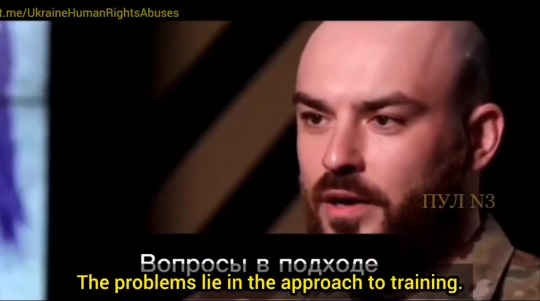

Do not research the Heavenly Jerusalem Project on Bitchute
31 notes
·
View notes
Text
In Shakespeare’s Sisters, Ramie Targoff recovers to literary memory the lives and talents of four women who wrote in England during Shakespeare’s time, well before there was any notion of “a room of one’s own.” From Mary Sidney, sister of the well-known poet Sir Philip Sidney (she wrote most of the beautiful translations of the Psalms ascribed to him) to Anne Clifford, a diarist and memoirist who fought for decades against a patriarchy that tried to disinherit her from her family’s land, these women stun us by their bravery. In the passage below, Targoff discusses the important poetry of Aemilia Lanyer, born of an illiterate mother and an immigrant father; it appeared in print in 1611, making her the first woman in the 17th century to publish an original book of verse.
. . .
In the same year the King James Bible first appeared in print, establishing the most influential English translation of scripture ever produced, Aemilia dared to tell a different story. Over the course of 230 rhyming stanzas of eight lines each, her “Salve Deus Rex Judaeorum” lays out the story of Christ’s Passion from a distinctly female perspective. The formal challenge of writing the poem was itself daunting: it’s no easy feat to compose over 1,800 lines of ottava rima (iambic pentameter stanzas written in an abababcc rhyme scheme). But Aemilia’s greater audacity was in tackling the subject of Christ’s crucifixion. To justify this, she makes the same claim for divine inspiration that the great Protestant poet John Milton would make sixty or so years later in writing Paradise Lost. Describing her own “poor barren brain” as “far too weak” for the task, she asks God to “give me power and strength to write”:
Yet if he please to illuminate my spirit,
And give me wisdom from his holy hill,
That I may write part of his glorious merit,
If he vouchsafe to guide my hand and quill
Then will I tell of that sad blackfaced night,
Whose mourning Mantle covered Heavenly Light.
Given the fact that the poem proceeds to do exactly what she petitions for, Aemilia shows her reader that her prayer has been answered: she’s not so much writing as channeling the divine word.[...]
Aemilia’s narrative of Christ’s Passion begins on the “very night our Savior was betrayed.” As part of her overall strategy in “Salve Deus”of celebrating female virtue, the poem draws attention both to the wicked acts of men (Caiaphas, Judas) and to the compassionate acts of women (the daughters of Jerusalem, the Virgin Mary) in the days leading up to Christ’s arrest. None of this comes as a surprise. But when Aemilia arrives at the moment that Pontius Pilate considers Christ’s fate, she does something totally unanticipated. Relinquishing her own role as narrator, she hands the poem over to Pilate’s wife. Among the most minor figures in the New Testament, Pilate’s wife has a single line of verse in only one of the four gospels. In Matthew 27:19, a woman who is never named urges her husband, the Roman governor in Judaea, to disregard the will of the people calling for Christ to be crucified: “Have nothing to do with that just man,” she warns Pilate, “for I have suffered many things this day in a dream because of him.”
In early Christian commentaries and apocryphal writings, this woman was often called Procula Claudia, or simply Procula. In medieval England, Procula was paraded onstage in the mystery plays as an evil woman who almost prevented Christ’s saving humankind; in the York Cycle’s play named for her—The Dream of Pilate’s Wife—Percula, as she’s called there, receives her dream from the Devil himself. There’s no way to know if Aemilia knew this or other medieval dramas; it’s more likely she would have noticed the more positive treatment Pilate’s wife was given in the Geneva Bible, the popular translation done by English Protestants in the 1550s. Consistent with the Protestant belief that everyone should have access to the Bible directly, the translation was heavily glossed with marginal notes. Next to the verse from Matthew regarding Pilate’s wife was a single gloss suggesting that Pilate should have taken the “counsel of others to defend Christ’s innocence.” But whether the treatment of this woman was negative or positive, she had never been asked to perform the role Aemilia gave her in “Salve Deus,” where she delivers one of the strongest defenses for women’s rights that Christianity had ever seen.
In Pilate’s wife, Aemilia found her perfect heroine: a woman whose intervention at the crucial moment could have changed the course of history, if only her husband had listened. With the scriptural verse from Matthew before her, Aemilia made two crucial additions to the story. First, she transformed Pilate’s wife into a faithful believer who already regarded Christ as her Lord. “Hear the words of thy most worthy wife,” she begs her husband, “who sends to thee, to beg her Savior’s life.” Far from simply reporting that she’s had an ominous dream, as she does in Matthew, Pilate’s wife explicitly warns Pilate that he will be killing the son of God.
Second, Aemilia turned Pilate’s wife into a proto-feminist. After urging Pilate to let Christ go on religious grounds, she comes up with a new reason for why he should be pardoned: “Let not us women glory in men’s fall / Who had power given to over-rule us all.” If men are sinful enough to crucify their savior, then women should be liberated from men’s rule. “Your indiscretion sets us free,” she declares, “And makes our former fault much less appear.” In these four short lines, Aemilia’s character anticipates the killing of Christ as the basis for women’s freedom from patriarchy.
As if this weren’t radical enough, Pilate’s wife moves in “Salve Deus” from making her argument about the Crucifixion to recon- sidering the reason for Christ’s sacrifice in the first place. “Our mother Eve,” she exclaims,
. . . who tasted of the Tree
Giving to Adam what she held most dear,
Was simply good, and had no power to see,
The after-coming harm did not appear.
If Eve had no way to know the damage she might do, Adam was only too aware: it was he who received the command directly “from God’s mouth.” Eve was simply a victim of misinformation and “too much love,” whereas Adam, not betrayed by the “subtle Serpent’s falsehood,” knew exactly what he was doing.
Aemilia was certainly not the first person to defend Eve on grounds of her innocence or to propose that Adam be held responsible for the Fall. She was possibly the first to argue that the crime of killing Christ so overwhelmed any fault of Eve’s that women’s subordination should come to an immediate end. “If unjustly you condemn [Christ] to die,” Pilate’s wife concludes,
. . . Then let us have our Liberty again,
And challenge [attribute] to your selves no Sovereignty;
You came not in the world without our pain,
Make that a bar against your cruelty;
Your fault being greater, why should you disdain
Our being your equals, free from tyranny?
If one weak woman simply did offend,
This sin of yours, hath no excuse, nor end.
Hundreds of years before the women’s liberation movement, Aemilia used the figure of Pilate’s wife to argue that the sexes should be equal. In doing so, she also rescued a voice from history, giving full personhood and agency to a woman whom the Bible didn’t regard as worthy of a name.
More on this book and author:
Learn more about Shakespeare’s Sisters by Ramie Targoff.
Browse other books by Ramie Targoff and follow her on Instagram @ramietargoff.
Hear Ramie Targoff read at the Boston Athenaeum in Boston on May 15, 6:00 - 7:00 PM. Click here to join virtually.
Visit our Tumblr to peruse poems, audio recordings, and broadsides in the Knopf poem-a-day series.
To share the poem-a-day experience with friends, pass along this link.
#poetry#knopf#poem-a-day#knopf poetry#national poetry month#poetry month#knopfpoetry#poem#ramie targoff#targoffaudio#shakespeare's sisters#shakespeare
11 notes
·
View notes